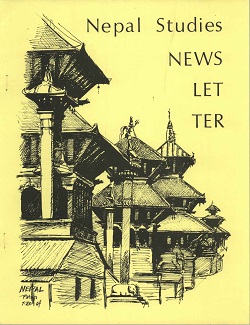Author Biography
Robert E. Beazley (M.S. Natural Resources, Cornell University, 2013) is a Ph.D. candidate in the Department of Natural Resources, Cornell University, USA. His M.S. research focused on the impacts of expanding rural road networks in the Annapurna Conservation Area. His current research involves an investigation of gendered mobility and borderland infrastructure in Rasuwa district, Nepal. His most recent book is Himalayan Mobilities: An Exploration of the Impact of Expanding Rural Road Networks on Social and Ecological Systems in the Nepalese Himalaya (Springer, 2017).
Abstract
In this paper, the author uses excerpts from social media postings and traditional media to highlight how various citizen and volunteer responses to the 2015 earthquake helped fill in the gaps created by institutional dysfunction. Further, he shows how these two types of media played a critical role in facilitating communication between grassroots aid initiatives and earthquake affected people and their families and friends, not only in Kathmandu but also in neglected mountainous areas as well. The author uses a personal, reflexive approach to help situate the distinct experiences of earthquake affected people including trauma patients, people with disabilities, and volunteer aid workers.
Acknowledgements
The author would like to thank Austin Lord and Sienna Craig for their review of the article and their many insightful comments and suggestions. He also would like to express a deep sense of gratitude and respect for all the volunteers, doctors, and nurses he had the privilege to work with and for the support both monetary and spiritual that manifested as a result of social media virtual participant experiences from around the world.
Creative Commons License

This work is licensed under a Creative Commons Attribution-Noncommercial-No Derivative Works 4.0 License.
Recommended Citation
Beazley, Robert E.. 2017. Himalayan Trauma: Administrative Thrombosis and Citizens’ Response. HIMALAYA 37(2).
Available at:
https://digitalcommons.macalester.edu/himalaya/vol37/iss2/8


